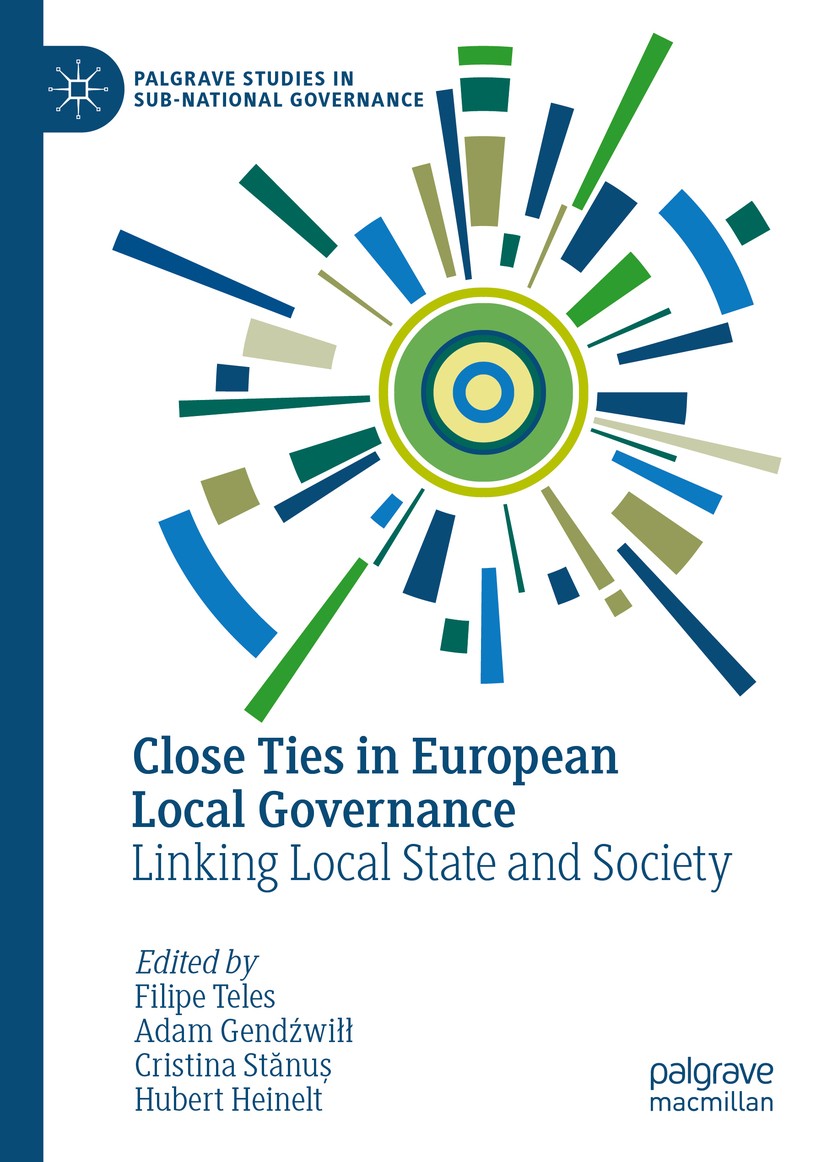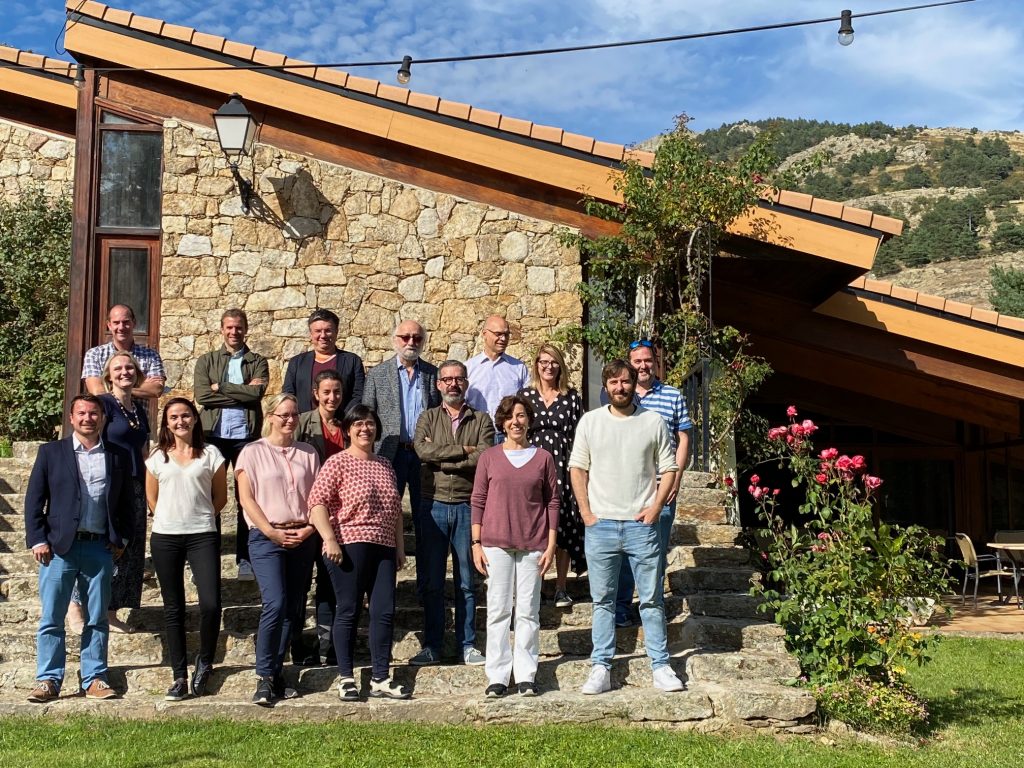Local State-Society Relation in Europe
Objectives
For about 20 years a group of scholars organized in the European Urban Research Association and/or the standing groups on Local Government and Politics (LOGOPOL) of the ECPR have carried out surveys in most European countries on actors performing different roles within local government. These survey offer valuable sources for comparative research in local government.
- The first survey was focused on executive officers (CEOs) or the highest ranking appointed and non-elected civil servant or employee at the municipal level. As it was supported by UDITE (Union des dirigeants territoriaux de l’Europe) is has been called the UDITE survey.
- The next survey – named the POLLEADER (‘political leader’) survey – dealt with European mayors from municipalities with more than 10,000 inhabitants.
- It followed a survey on councillors from municipalities with more than 10,000 inhabitants – called the MAELG (‘Municipal Assemblies in European Local Governance’) survey. It was based on a stratified sample that took into account the regional distribution of the total number of municipal councillors in a country.
- The next survey concerned councillors and executive heads from the second tier of local government (i.e. counties, provinces etc.). As comparative studies on the second tier of local government in European countries did not existed, a study of the tasks and organisation of this level of government in European countries was carried out before as a precondition of the mentioned survey.
- The last survey focused again on European mayors (POLLEADER II).
In a next step, a survey is planned on societal actors interacting in institutionalized governance networks with actors of local government in different European countries.

For the preparation of this survey a first workshop took place in Bensheim (Germany) from November 24-26, 2017.
This workshop attended Oliver Dlabac (Univ. Zürich), Tom Verhelst (Univ. Ghent), Lluis Medir (Univ. Barcelona), Adam Gendzwill and Pawel Swianiewicz (University Warsaw), Annick Magnier (University Florence), Pieter Jan Klok (Twente University), Cristina Stanus (University Sibiu), Filipe Teles (University of Aveiro), Nikolaos Hlepas (National Univ. Athens), Anders Lidström and David Feltenius (Umeå University), Carmen Navarro (University Autónoma de Madrid), Jakub Lysek (Univerzity Palackého), Dubravka Jurlina Alibegovic (Institute of Economics, Zagreb), Dario Cepo (University Zagreb), Detlef Sack (University Bielefeld), Björn Egner and Hubert Heinelt (TU Darmstadt).

A second workshop of the network took place on the Greek island of Hydra between May 10‐13, 2018.
This workshop was focused on the preparation of a book in which theoretical chapters as well as country chapters on local state-society relation in Europe will be presented. This book, to be edited by Filipe Teles, Adam Gendźwiłł, Cristina Stănuş and Hubert Heinelt, will be published by Palgrave Macmillan and summarize the results of the work of the network reached so far.
Furthermore, the participants started to develop at the second workshop a questionnaire which will be sent to actors involved in selected local state-society network in nineteen European countries.
The following colleagues participated at the Hydra workshop: Dubravka Jurlina Alibegovic, Koenraad de Ceuninck, Björn Egner, Grétar Eythórsson, Adam Gendźwiłł, Hubert Heinelt, Nikos Hlepas, Allister Jones, Max Kayser, Jakub Lysek, Luis Medir, Carmen Navarro, Werner Pleschberger, Paula Russel, Cristina Stănuş, Pawel Swianiewicz and Filipe Teles.
Both drafts of book chapters and a draft of the questionnaire were discussed at a third workshop which took place in Aveiro (Portugal) on 6th and 7th of March 2019, with the following colleagues: Jurga Bučaitė-Vilkė, Koenraad de Ceuninck, Dario Cepo, Björn Egner, Karin Fossheim, Adam Gendźwiłł, Hubert Heinelt, Linnéa Henriksson, Joanna Krukowska, Anders Lidström, Jakub Lysek, Luis Mota, Carmen Navarro, Patricia Silva, Cristina Stănuş, Pawel Swianiewicz and Filipe Teles.

In the meantime, the first book resulting out of this working has been published.
Book title: Close Ties in European Local Governance. Linking Local State and Society
Editors: Filipe Teles, Adam Gendźwiłł, Cristina Stănuș, Hubert Heinelt
DOI: doi.org/10.1007/978-3-030-44794-6
The book develops and tests a typology of local state-society relations. To deliver such a comparative study on institutionalized relations between local government and societal actors at the municipal level in Europe, the book identifies and classifies country-specific patterns of these institutionalized governance networks. This work explores the diversity within these institutionalized networks, approaching it from a strong comparative perspective that is anchored on a new typology allowing a more robust analysis of the identifiable patterns. It is a study with appeal to scholars and students of local government, public administration and political science as well as to those pursuing this debate and implementing similar agendas as practitioners.


In the meantime, the second book resulting out of this working has been published.
Book title: Perspective on Local Governance across Europe. Insights on Local State-Society Relation
Editors: Björn Egner, Hubert Heinelt, Jakub Lysek, Patricia Silva, Filipe Teles
DOI: doi.org/10.1007/978-3-031-15000-5
This book focuses on local state-society relations, understood as institutionalised relations between local municipalities across Europe and individual, collective or corporate societal actors. It presents a typology of local state-society relations, and applies this to characterise the most relevant institutionalised relations between local government and societal actors at the municipal level in 22 European countries. The comparative volume will clarify whether or not patterns can be detected in the makeup of different types of networks; whether or not these patterns are country-specific or policy-specific; and why cases exist which are so distinct that they are not subsumable under a certain pattern. Taken together, this book will go beyond national typologies to emphasise the role of agency and innovation in particular policy sectors, providing a major contribution in the study of the local governance of Europe. It will appeal to scholars and students of local governance, public administration, urban planning and European studies.
With the publication of this book, the EURA working group on local state-society relations in Europe has finished its work. However, most members have formed a new network and started preparing a survey of municipal councillors.
If you are interest in the new EURA Working Group on Municipal Councillors in Europe click here!


